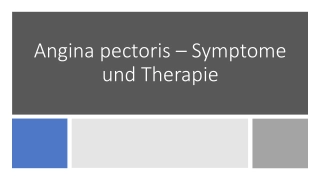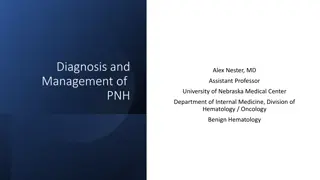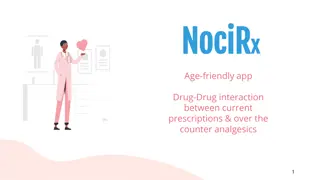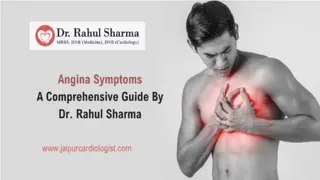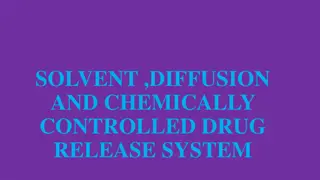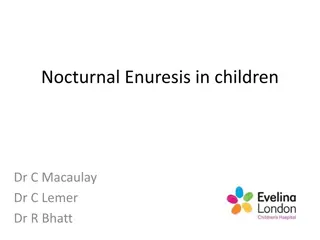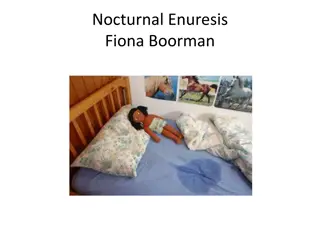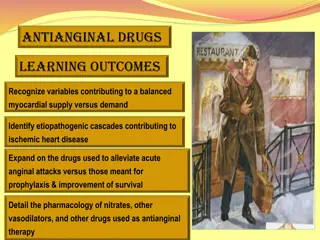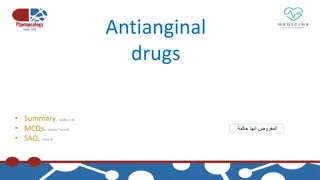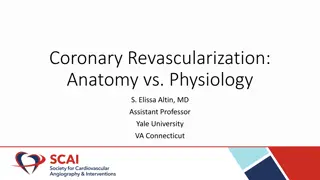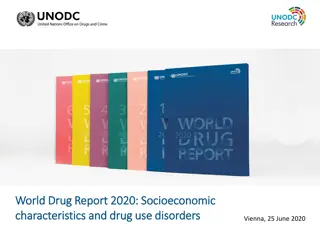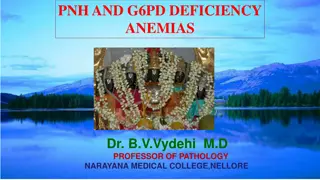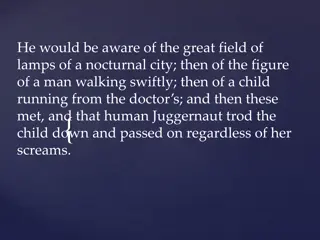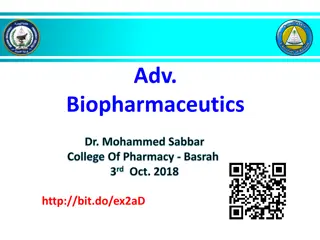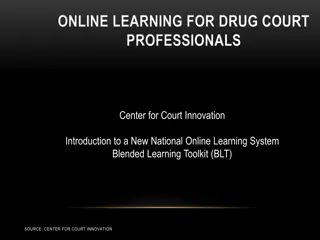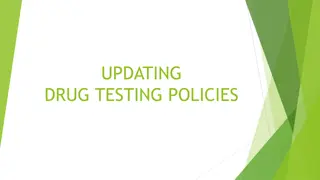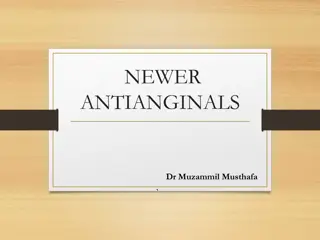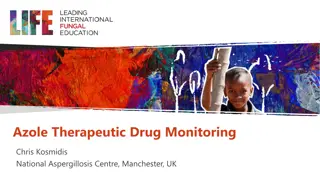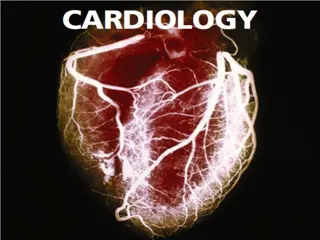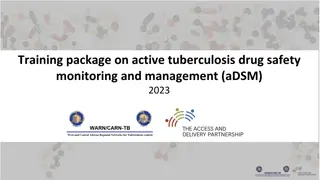Managing Nocturnal Angina: Drug Treatment Considerations
Addressing a 68-year-old man experiencing nocturnal chest pain, this content discusses drug options to prevent nighttime angina, exploring the efficacy of drugs like amyl nitrite, nitroglycerin, esmolol, and hydralazine. Learn about the pathophysiology of angina, major determinants of cardiac oxygen consumption, therapeutic effects, and potential risks associated with drug combinations. Gain insight into medical and surgical therapies for angina, and why a nitrate combined with a blocker may be more effective. Discover the dangers of combining nitrates with sildenafil.
Download Presentation

Please find below an Image/Link to download the presentation.
The content on the website is provided AS IS for your information and personal use only. It may not be sold, licensed, or shared on other websites without obtaining consent from the author.If you encounter any issues during the download, it is possible that the publisher has removed the file from their server.
You are allowed to download the files provided on this website for personal or commercial use, subject to the condition that they are used lawfully. All files are the property of their respective owners.
The content on the website is provided AS IS for your information and personal use only. It may not be sold, licensed, or shared on other websites without obtaining consent from the author.
E N D
Presentation Transcript
Checklist When you complete this chapter, you should be able to: Describe the pathophysiology of effort angina and vasospastic angina. List the major determinants of cardiac oxygen consumption. List the strategies and drug targets for relief of anginal pain. Contrast the therapeutic and adverse effects of nitrates, blockers, and calcium channel blockers when used for angina. Explain why the combination of a nitrate with a blocker or a calcium channel blocker may be more effective than either alone. Explain why the combination of a nitrate and sildenafil is potentially dangerous. Contrast the effects of medical therapy and surgical therapy of angina.
A 68-year-old man has been successfully treated for exercise-induced angina for several years. He recently has been complaining about being awakened at night with chest pain. Which of the following drugs would be useful in preventing this patient's nocturnal angina? A. Amyl nitrite. B. Nitroglycerin (sublingual). C. Nitroglycerin (transdermal). D. Esmolol. E. Hydralazine.


